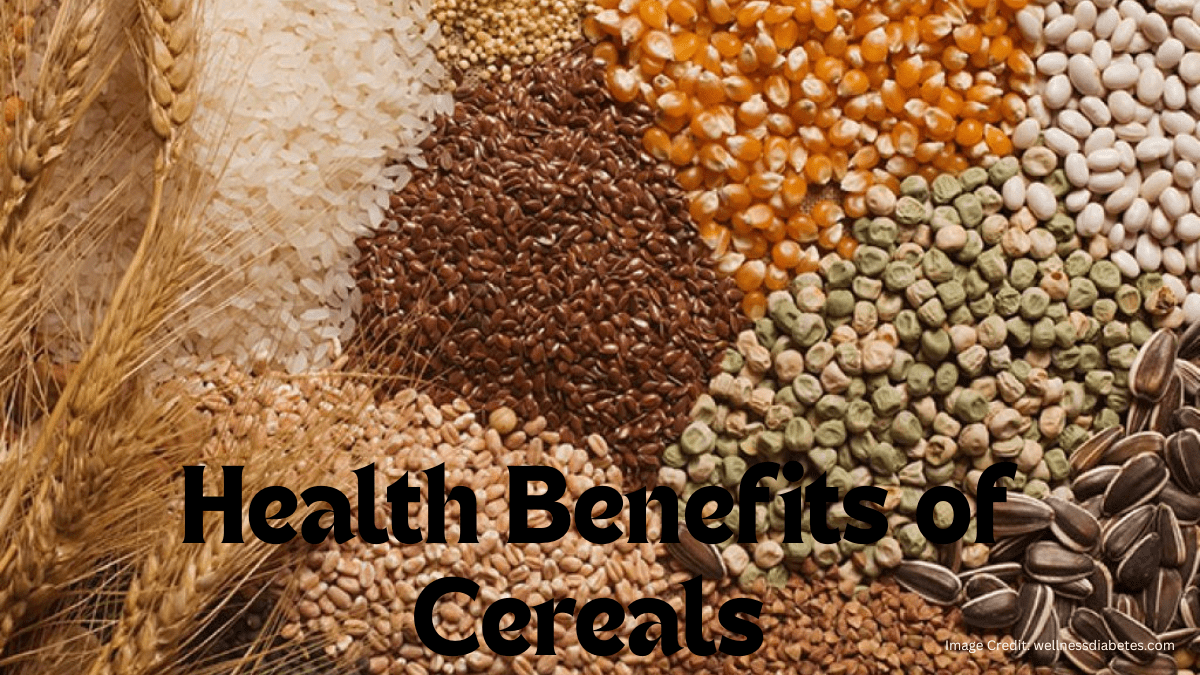Health Benefits of Cereals
Health-conscious people are on the rise. The health benefits of cereals are being highlighted by nutrition experts. It’s time we bring back the wholesome grains that have nourished us for generations.
Cereals contribute to nutrition, energy, disease prevention, and overall well-being.
Table of Contents
Cereals: A Nutritional Cornerstone
Cereals like wheat, rice, oats, barley, and millets are now back as people now aim to balance convenience with clean nutrition. Cereals are the most essential energy sources in the human diet.
As more urban people opt for healthier breakfast choices, cereals are being widely recommended for their balance of energy and essential nutrients. This resurgence underlines the expanding awareness around the health benefits of cereals.
Whole Grains v/s Refined Grains
Cereals differ greatly in nutritional value. Whole grain cereals are superior to the refined ones. Whole grain cereals contain:
- Bran,
- Germ, and
- Endosperm.
Refined white rice and food products made from maida lack fibre and micronutrients essential for digestion and metabolic health. This differentiation is important in understanding the health benefits of cereals for making correct food choices.
The Role of Fibre in Gut Wellness and Heart Care
Cereals have high dietary fibre content. Dietary fibre is one of the most important health benefits of cereals. It promotes:
- Gut health,
- Ensures smoother digestion, and
- Prevents constipation.
Fibre reduces the risk of chronic diseases such as:
- Type 2 diabetes,
- Cardiovascular disease, and
- Even certain cancers.
Fibre adds bulk to the stool and supports bowel regularity. Whole grains are:
- Oats,
- Barley, and
- Ragi.
Whole grains are beneficial for maintaining intestinal health, and they reduce bad cholesterol.
Millets Rediscovered: The Forgotten Grain Reclaimed
Millets are coming back to Indian kitchens. They were overlooked previously, but are now they are emerging as heroes of health. Health benefits of millets are:
- Managing blood sugar,
- Managing cholesterol, and
- Enhancing digestive wellness.
Millets that are gaining popularity include:
- Ragi: It is rich in calcium and dietary fibre. It is excellent for children and the elderly.
- Jowar: It is full of antioxidants and is good for weight management.
- Bajra: It is packed with minerals. It supports heart and gut health.
- Foxtail Millet: It is high in protein. It helps control blood sugar levels.
Nutritionists encourage people to include millets in their weekly meal plans to tap into the health benefits of cereals.
Also Read:
Cereals Contain Proteins, Vitamins, and More
Cereals contribute to protein intake. Protein is crucial for:
- Muscle repair,
- Hormone function, and
- Overall vitality.
Cereals don’t offer complete proteins alone. Cereals paired with milk, legumes, or seeds form a robust protein source.
Cereals are rich in:
- B Vitamins: It is important for brain and nerve function.
- Iron and Zinc: They support immune function and blood health.
- Magnesium and Calcium: They promote bone and muscle wellness.
The health benefits of cereals go beyond just macronutrients. They include a full suite of micronutrients that sustain daily health.
Cereals Help Prevent Disease
Cereals help in the prevention of disease. This is now backed by scientific research.
Cereals high in phytosterols help block harmful estrogens, thereby lowering breast cancer risk. Cereal’s fibre content promotes faster waste removal, which reduces colon cancer risk.
Regular cereal consumption helps prevent and manage:
- Type 2 diabetes,
- Obesity,
- Cardiovascular diseases,
- Gastrointestinal disorders,
- Hemorrhoids,
- Hormonal imbalance.
Health Benefits of Cereals For Children: Fuel for Growth
Children need constant energy and nutrients for their fast-growing bodies. A simple bowl of cereal with milk can meet nearly half of a child’s daily vitamin and mineral requirements.
For children, Nutritionists recommend:
- Ragi porridge,
- Whole wheat parathas,
- Oatmeal with fruit,
- Poha with vegetables.

Health Benefits of Cereals – Making Smarter Choices
Cereals offer great nutritional value, but making smart choices is important. Smart choice would be:
- Eat whole grains.
- Avoid cereals with added sugars and artificial ingredients.
- Eat different grains like wheat, oats, millets, and rice.
- Eat cereals with dairy or pulses to enhance protein and nutrient absorption.
These tips will ensure extracting the full health benefits of cereals with every meal.
Cereal Consumption in Indian Diets
Incorporating cereals into meals is important:
- Breakfast: Eat brown rice idlis, jowar paratha, and oat porridge.
- Lunch: Eat bajra khichdi, ragi roti, and whole grain pulao.
- Dinner: Eat barley soup, multigrain chapati, and foxtail millet rice.
Experts stress that such integration of cerels can drastically improve:
- Dietary fibre,
- Micronutrient intake, and
- Long-term health.
Cereals vs Pulses: A Nutritional Comparison
While cereals provide primary energy via carbohydrates, pulses like:
- Lentils,
- Chickpeas, and
- Beans
They are rich in protein and micronutrients. Consuming both offers a nutritionally complete diet, especially in vegetarian households.
Cereals and pulses together support:
- Balanced energy
- Muscle development
- Improved digestion
- Lower risk of chronic illnesses
Traditional Indian meals like khichdi and dal-roti offer complete health benefits of cereals and pulses alike.
Also Read:
Words of Caution: Cereals May Not Suit All
Though widely beneficial, some cereals may not be suitable for people with gluten sensitivity or IBS. Experts recommend moderation and variation. Excessive bran can cause bloating and gas. For individuals with celiac disease, gluten-free options like rice or millets are safer.
Ancient Grains, Modern Nutrition
The health benefits of cereals are deeply rooted in tradition, and now it is backed by modern science.
Cereals have the ability to provide:
- Daily energy,
- Fight disease,
- Aid digestion, and
- Supply vital nutrients.
Cereals are superfoods in disguise.
Nutritionists suggest that everyone, regardless of age or lifestyle, can benefit from making cereals a regular part of their diet.








